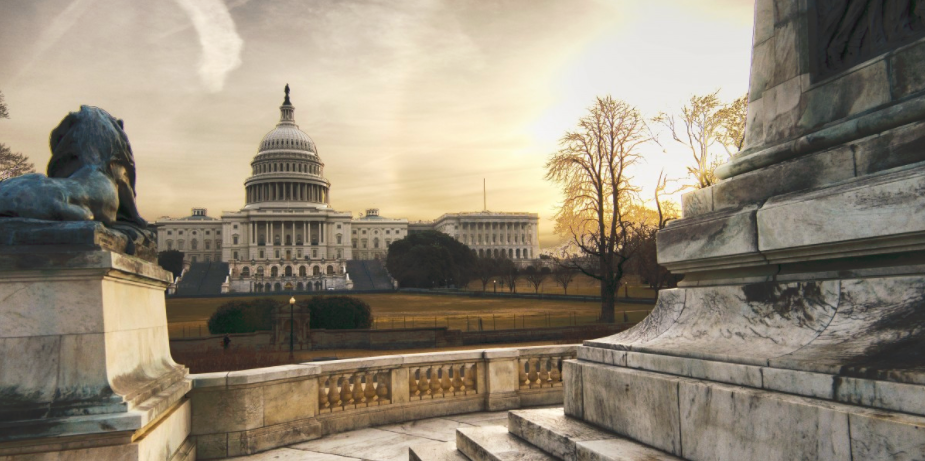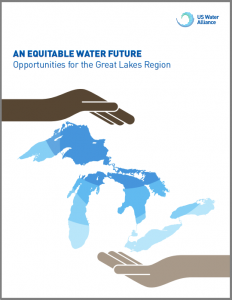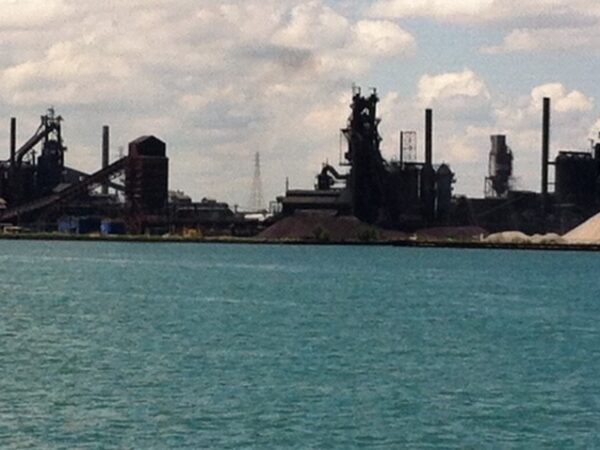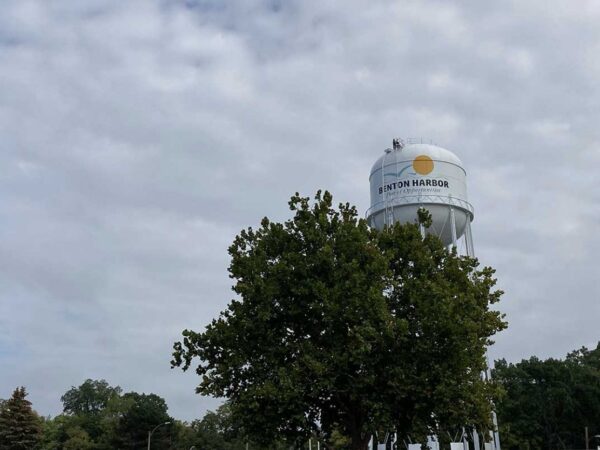
Report focuses on water equity and infrastructure in Great Lakes region
The U.S. Water Alliance, in a report released today, called for government at all levels to focus investment on water infrastructure with an emphasis on water equity related to economically disadvantaged communities in the Great Lakes region.
Radhika Fox told a press briefing that a top priority for the Alliance is to “leverage the region’s water economy” to help address existing problems. Fox is the Alliance’s Chief Executive Officer.
The report contains the “Pillars of Water Equity” that include access to affordable and safe drinking water, a call to maximize the community and economic benefits of water infrastructure investment, and to foster community resilience in the face of a changing climate.”
Fox cited a U.S. Environmental Protection Agency statement that “there’s a $175 billion estimate of budget needed through 2030 to maintain and upgrade the water, wastewater, and storm water infrastructure in the region’s eight states.”
President Trump’s recently released infrastructure plan did not place an emphasis on water systems. In response to a Great Lakes Now question Fox said “water needs to be in a more prominent role in Trump’s infrastructure plan.”
In the briefing, Fox said while the Flint crisis, Detroit water shutoffs, and the Toledo water crisis have garnered national headlines, the region does have success stories.
Milwaukee’s Metropolitan Sewerage District has been a leader including women and minority businesses in district projects. The district has awarded 25 percent of its procurement awards to women and minorities since 2013, according to the Alliance report.
The district’s Kevin Schafer is on the board of the U.S. Water Alliance.
In Detroit, there’s been success where “green infrastructure can help turn vacant, underutilized properties and land in cities into productive spaces that revitalize neighborhoods and improve water quality, the report notes.

Fred A. and Barbara M. Erb Family Foundation, courtesy of erbff.org
“Funding from the Erb Family Foundation will help the team measure the effectiveness of bioretention gardens at improving water quality in Detroit and understand residents’ perspectives on the gardens,” according to the Alliance report.
The group’s task now will be to hit Capitol Hill and explain the need to legislators.
The U.S. Water Alliance joins the Great Lakes Commission and a coalition of environmental groups in Washington this week.
The Commission is holding its semi-annual meeting and will hear presentations on some of the same issues that are priorities in the Alliance report.
Environmental groups will lobby for continued federal funding for Great Lakes restoration.





